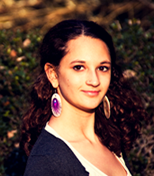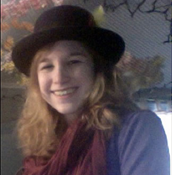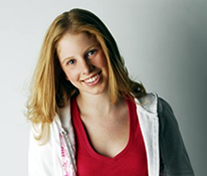
PUBLISHER'S NOTE: When education incorporates volunteerism, the rewards for the students can last long passed graduation.
Three students from the Sturgis Charter Public School, in Hyannis, tell us why the C.A.S. program is such an important part of their high school education.

What is C.A.S.?
by Marissa Barmash
I am a senior at Sturgis Charter High School in Hyannis, and a candidate for their International Baccalaureate (I.B.) degree. C.A.S. is one of the required programs that defines the I.B.program. C.A.S. stands for “Creativity, Action and Service.”
The I.B. was first created for the children of diplomats so that they would not be left behind on their education. It’s a degree recognized around the globe.
The I.B. is about being a citizen of the world; the exams that an I.B. student takes in May of their senior year are sent to any other I.B. country in the world, along with the many assessments and papers.
As I.B. students, we have to complete as many activities as we need to add up to eight learning objectives. Some of these objectives include undertaking new challenges, working collaboratively with others, engaging with issues of global importance and developing new skills.
The essential point of C.A.S. is for students to try something new, take leadership roles, help out their communities and be aware of what is happening around them. You have to propose your C.A.S. activities and give two learning objectives for each, putting them under creativity, action and/or service.
You also journal about everything you do. At Sturgis, we have an online blog for C.A.S. for journaling. When I take my ballet lessons at Balletworks, for instance, I blog online about each class.
Even though I’ve been a dancer my whole life, with dance as a C.A.S. activity I’ve had to journal everything I do. In that process, I have realized my strengths and weaknesses; I know what I can improve on by journaling about every single class.
There’s a C.A.S. coordinator for every school who checks the proposals and blogs. Once you’re finished with an activity, the adult who supervised your activity has to fill out a form that reviews your achievements.
For the past year and a half, the activities I’ve journaled for C.A.S. include ballet lessons, a trip to another charter school, Greek club and the SOI club (Sturgis Organic Initiative.) Through my involvement with SOI, I learned to appreciate and think about what I’m eating.
You may think that there’s nothing to worry about when eating a simple tomato, but it may have been sprayed by pesticides. There’s a reason why a locally grown tomato and one you would get at Stop N’ Shop taste so different – it’s all in the way it’s grown and what’s actually in it.
Since watching the documentary “Food Inc.” in SOI, the graphic images of slaughterhouses really made me think about the meat I was eating. After long consideration I decided to stop eating meat. This was something I had been considering for awhile, but this helped me make my final choice.
I am also planning to volunteer at Cape Winds Rest Home, in Sandwich, and work with CapeWomenOnline magazine. With C.A.S. I have done things I would probably have never tried before, and I am challenging myself with every new activity.
Marissa Barmash is a Senior at Sturgis Charter Public School. She is full I.B. diploma candidate and this is her second year of the I.B. and C.A.S.
She lives in Sandwich with her parents and older sister, and two golden retrievers. In her spare time she takes dance lessons at Balletworks, is a competitive dancer, writes short stories and poems and loves to spend time with her family and friends.
Embracing the Opportunities of
the C.A.S. Volunteer Program
by Carolyn Willander
As a rising junior, C.A.S. appeared to be the most daunting aspect of the International Baccalaureate. Luckily for me, this was not the case.
I have always maintained a variety of extra-curricular activities year-round, so the only additional requirement of the C.A.S. program was the journaling aspect.
Fortunately for me, writing comes easily. While some students may spend hours staring at the computer screen trying to reflect on their activities, I’m easily able to put into words how I’m achieving the eight learning outcomes and record my progress.
So far, I have completed three activities, am in the midst of two, and have plenty more planned. This past fall, in order to fulfill my action requirement, I joined Cape Cod Rowing. I had played several sports in the past, but always had difficulty balancing athletics with my passion for theatre.
C.A.S. gave me the perfect excuse to branch out and commit myself to a sport. Since I joined the team, I’ve discovered a new and even more compelling passion, one which I plan to pursue for the rest of my high school career and, hopefully, in college.
By some stroke of luck, I’ve been able to row and continue acting at the same time. I was cast in the SCPS drama club’s fall production, Dino. I rowed Monday, Wednesday, and Friday, and rehearsed Tuesday and Thursday. This might seem overwhelming, but I thrive on a busy schedule and enjoyed every minute of the season.
The production, which counted as creativity, was my first experience with theatre at Sturgis, as well as an opportunity to make many new friends and memories.
Finding new interests and making new friends are just a few of the benefits of the C.A.S. program. While the primary goal of C.A.S. is to produce well-rounded students, the program leaves you with an impressive transcript to present to colleges.
C.A.S. has inspired me to pursue community service and creative ideas that I may otherwise not have had the initiative to undertake.
For example, in order to complete a service activity I contacted the Audible Local Ledger, a radio station for the blind, visually-impaired and print-disabled residents of Cape Cod and the Islands. The Executive Director, Sherri Bergeron, asked me to read a series of Christmas stories throughout the months of November and December.
Since then, in addition to rowing indoors at the YMCA, I launched another service activity. Twice a week I volunteer after school for the Cape & Islands United Way, an organization which funds human service projects on the Cape.
C.A.S. activities do not have to span over the course of a month or several months. They can be much smaller. For example, I learned of an opportunity to receive a grant for my I.B. Theatre class’s trip to London, England, which will take place next February.
As a service activity, I volunteered to draft and submit the grant by the deadline. This two-week activity is a lot shorter than the two months I spent rowing, but C.A.S. promotes quality, not quantity. I hope to learn and grow equally from the two activities and many others, no matter the size.
I expect this spring to be the busiest in terms of C.A.S. activities, but I am looking forward to every minute of it.
I am excited to have joined the CapeWomenOnline team, and to be involved with such a unique and compelling source of news for women on the Cape. I hope that my creativity and service will contribute to a positive experience for its readers.
Carolyn Willander is a Junior at Sturgis Charter Public School and is a full I.B. diploma candidate. She recently travelled to NYC with the SCPS Model United Nations, as a correspondent for the student newspaper, Stormwatch, to follow the MUN at the four-day conference.

My C.A.S. Experience
by Mariah Orchid Kelley
My name is Mariah Orchid Kelley, and I am a seventeen-year-old Junior at Sturgis Charter Public School. I plan to attend college for creative writing or journalism, and to live in London, England when I am finished with school.
To me, the C.A.S. program is one of the most beneficial parts of the International Baccalaureate program (I.B.) as a whole. The C.A.S. program dares the I.B. students to make their own mark in their communities, and to leave a story behind when they leave for college.
Through the C.A.S. program, I.B. students are able to acquire knowledge about themselves that they may not have had at the start of their high school education. They realize their strengths and weaknesses, and often begin to realize just what they want to do with their lives through the various exposures to different organizations.
Although I personally have not initiated any service activities for the purpose of C.A.S. yet, I have been in Girl Scouts for a number of years and have done a great deal of volunteer work in collaboration with organizations such as the Cape Cod Museum of Art, Americorps and many others.
When I was younger, volunteering was something I did merely because my mother had signed me up with a smile and the assurance that she’d packed me a delicious lunch for the day. As I became older, and began to realize my own preferences, volunteer work was something I participated in of my own accord.
Prompted now to think about how volunteering has made me feel, I suppose that it’s had a very positive effect on me.
I don’t think of it so much as volunteering as participating in activities with friends. If the activity is something that you’re passionate about, and the people there are just as passionate, then there’s an infinite possibility to make new friends and to become a part of something that is more than school or home.
I am currently planning to participate in a program called the “Great Sprout Tuck-In,” through the Pajama Program, as a service activity for C.A.S. I’ll collect donations of new pajamas and bedtime books for young children who often go without. I am very excited about this activity, as children are a very important part of my life.
Though being a part of the I.B. program has made me a better student, the C.A.S. program is what will make me a better person, able to leave my own mark behind me no matter where my life takes me.
Mariah Orchid Kelley is a Junior at Sturgis Charter Public School and is a full I.B. diploma candidate.
The C.A.S. program aims to
develop students who are:
- Reflective thinkers—they understand their own strengths and limitations, identify goals and devise strategies for personal growth
- Willing to accept new challenges and new roles
- Aware of themselves as members of communities with responsibilities towards each other and the environment
- Active participants in sustained, collaborative projects
- Balanced—they enjoy and find significance in a range of activities involving intellectual, physical, creative and emotional experiences
 |
